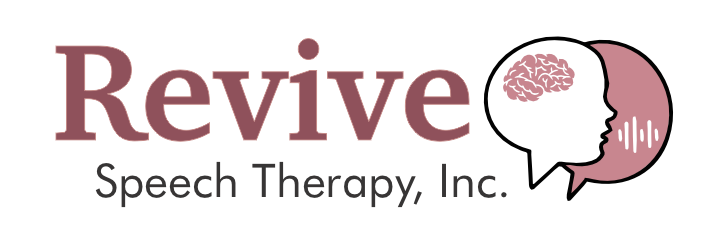GERD: Implications in Speech Therapy
Speech-Language Pathology and Individuals with GERD
GERD (gastroesophageal reflux disease) can manifest with various symptoms, and its implications on speech pathology can be significant. Here are common symptoms of GERD and their implications on speech pathology:
Heartburn: This is a burning sensation in the chest or throat, often occurring after meals or when lying down. Heartburn can lead to discomfort and pain, which may affect an individual's ability to speak comfortably, particularly if the discomfort is exacerbated by vocal use.
Regurgitation: Regurgitation involves the reflux of stomach contents, including acid, back into the esophagus or throat. When stomach acid reaches the throat, it can irritate the delicate tissues of the vocal cords and surrounding structures, leading to symptoms such as hoarseness, throat clearing, coughing, and a sensation of a lump in the throat. These symptoms can significantly impact vocal quality and clarity.
Dysphagia (difficulty swallowing): GERD can cause irritation and inflammation of the esophagus, leading to dysphagia or difficulty swallowing. Individuals with dysphagia may experience discomfort or pain while swallowing, which can affect their ability to speak fluently and comfortably. Speech pathologists may work with patients to improve swallowing function and minimize the impact of dysphagia on speech.
Chronic cough: A persistent cough is a common symptom of GERD, often due to the irritation of the throat and airways by stomach acid. Chronic coughing can strain the vocal cords and lead to hoarseness, voice fatigue, and other voice disorders. Speech pathologists may address cough management strategies and vocal hygiene techniques to reduce vocal strain and improve voice quality.
Laryngitis: Chronic exposure to stomach acid can lead to inflammation and irritation of the larynx (laryngitis), resulting in voice changes such as hoarseness, roughness, and vocal fatigue. Speech pathologists may provide voice therapy to help individuals restore vocal function and reduce vocal strain caused by laryngitis.
Vocal cord dysfunction: In severe cases, GERD can contribute to vocal cord dysfunction, including vocal nodules, polyps, or ulcers. These structural abnormalities can impair vocal function and require intervention by speech pathologists, otolaryngologists, or other healthcare professionals.
Lifestyle factors: GERD symptoms may influence lifestyle factors that affect vocal health, such as dietary choices, hydration, and vocal hygiene practices. Speech pathologists can provide education and counseling on lifestyle modifications to manage GERD effectively and minimize its impact on vocal function.
Overall, GERD can have significant implications for speech pathology by causing a range of symptoms that affect vocal quality, swallowing function, and overall communication. Speech pathologists play a crucial role in assessing and managing these symptoms to optimize vocal health and quality of life for individuals with GERD.
SLP Recommendations for Managing GERD Symptoms to Optimize Vocal Health, Swallowing, and Quality of Life
To optimize your vocal health, swallowing function, and overall well-being, the following strategies are recommended:
Dietary Modifications: Avoid foods and beverages that trigger reflux, such as spicy, acidic, fatty, and caffeinated items. Instead, focus on a diet rich in fruits, vegetables, whole grains, and lean proteins. Eating smaller, more frequent meals and avoiding large meals close to bedtime can also help reduce reflux symptoms.
Hydration: Stay well-hydrated by drinking plenty of water throughout the day. Hydration is essential for maintaining vocal health and supporting optimal swallowing function.
Lifestyle Changes: Maintain a healthy weight through regular exercise and balanced nutrition. Excess weight can contribute to increased intra-abdominal pressure, worsening GERD symptoms. Additionally, avoid lying down or bending over immediately after eating, as this can promote reflux.
Posture and Positioning: Practice good posture and elevation of the head during sleep to minimize reflux episodes. Elevating the head of your bed by six to eight inches can help prevent stomach acid from flowing back into the esophagus.
Medication Management: Follow your healthcare provider's recommendations regarding GERD medications, such as proton pump inhibitors (PPIs), H2 blockers, or antacids. Consistently taking prescribed medications as directed can help control reflux symptoms and protect your vocal and swallowing function.
Vocal Hygiene: Practice gentle vocal hygiene techniques to minimize strain on your vocal cords. Avoid yelling, whispering, throat clearing, and prolonged speaking sessions, as these behaviors can exacerbate vocal symptoms associated with GERD.
Swallowing Exercises: Engage in swallowing exercises recommended by your speech-language pathologist to improve swallowing function and reduce the risk of aspiration or choking. These exercises may include tongue and throat strengthening exercises, as well as strategies to facilitate safe swallowing.
Stress Management: Incorporate stress-reduction techniques such as mindfulness, deep breathing exercises, yoga, or meditation into your daily routine. Chronic stress can exacerbate GERD symptoms and impact vocal and swallowing function.
Remember, managing GERD requires a multifaceted approach that addresses dietary, lifestyle, medical, and behavioral factors. By implementing these recommendations and working closely with your healthcare team, you can effectively manage your GERD symptoms and optimize your vocal health, swallowing function, and overall quality of life!
